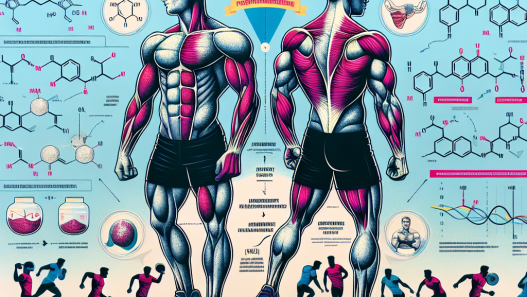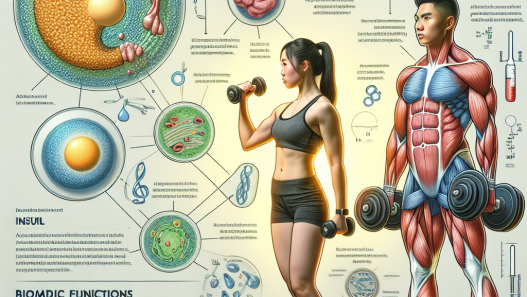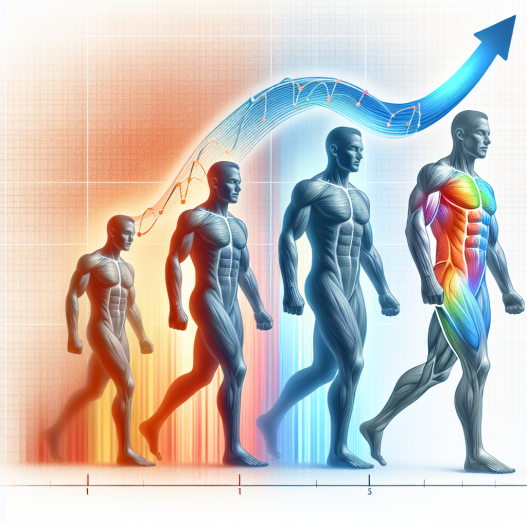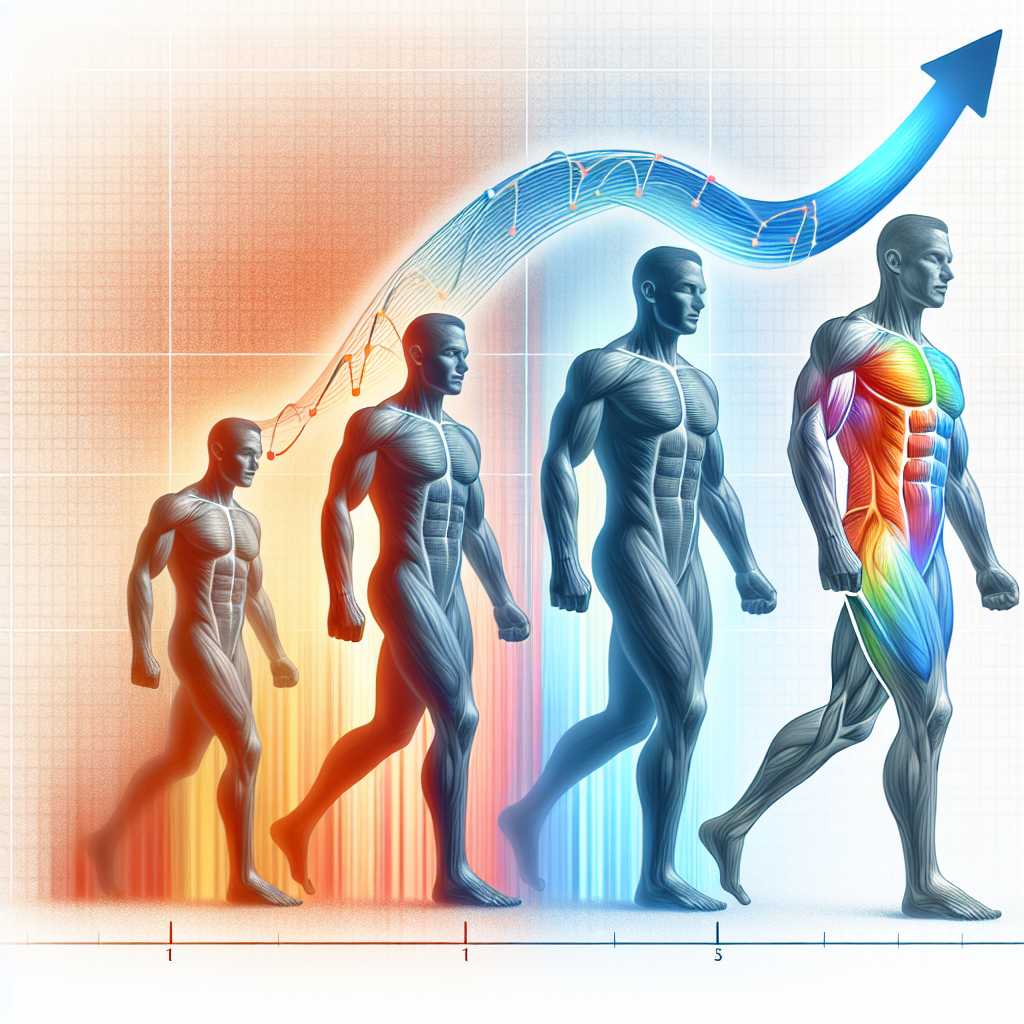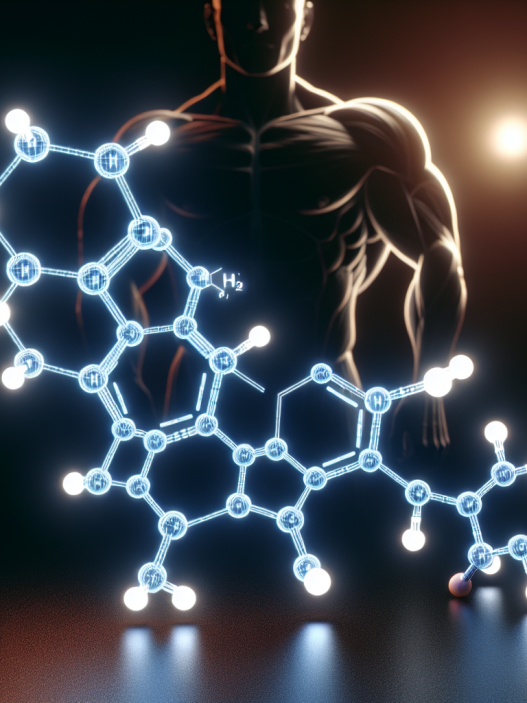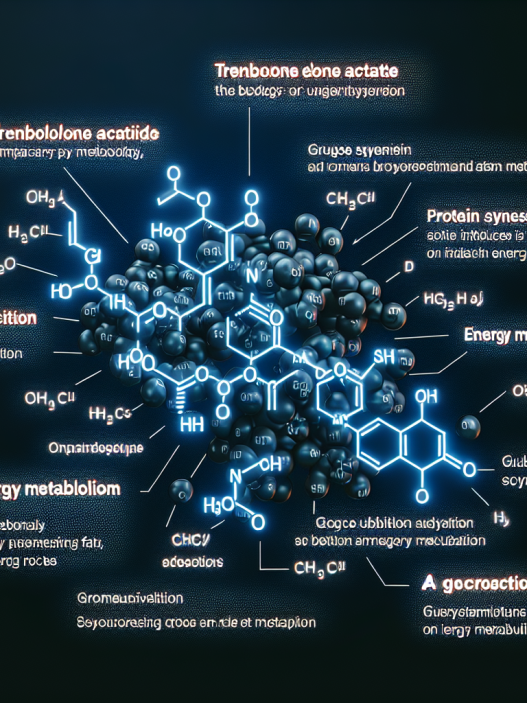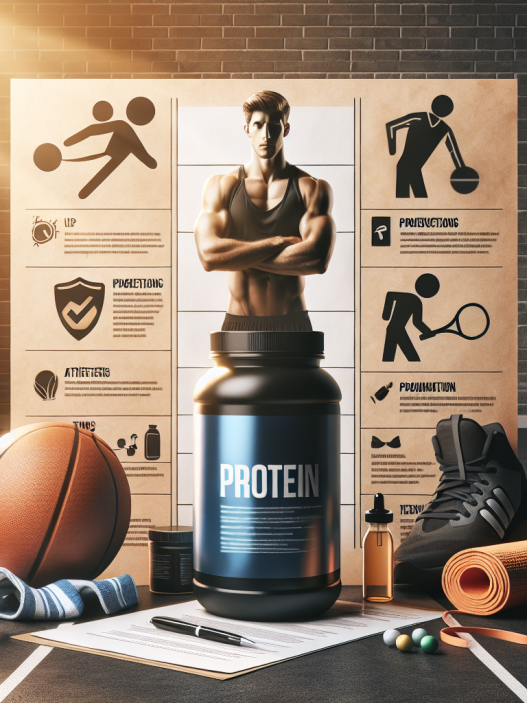-
Table of Contents
Influence of Testosterone Propionate on Physical Performance
Testosterone is a naturally occurring hormone in the human body that plays a crucial role in the development and maintenance of male characteristics. It is also known to have an impact on physical performance, making it a popular topic in the field of sports pharmacology. One form of testosterone, testosterone propionate, has been studied extensively for its effects on physical performance. In this article, we will explore the pharmacokinetics and pharmacodynamics of testosterone propionate and its influence on physical performance.
Pharmacokinetics of Testosterone Propionate
Testosterone propionate is a synthetic form of testosterone that is administered via injection. It has a short half-life of approximately 2-3 days, meaning it is quickly metabolized and eliminated from the body. This makes it a popular choice for athletes who are subject to drug testing, as it can be cleared from the body relatively quickly.
After injection, testosterone propionate is rapidly absorbed into the bloodstream and reaches peak levels within 24-48 hours. It is then metabolized by the liver and excreted through the kidneys. The rate of metabolism can vary depending on factors such as age, liver function, and genetics.
It is important to note that testosterone propionate is a controlled substance and should only be used under the supervision of a healthcare professional. Misuse or abuse of this substance can lead to serious health consequences.
Pharmacodynamics of Testosterone Propionate
The pharmacodynamics of testosterone propionate are similar to that of natural testosterone. It binds to androgen receptors in the body, which then activate a cascade of events that lead to an increase in protein synthesis and muscle growth. This is why testosterone is often referred to as an anabolic hormone.
In addition to its anabolic effects, testosterone propionate also has androgenic effects, meaning it can stimulate the development of male characteristics such as facial hair, deepening of the voice, and increased libido. These effects can be beneficial for athletes looking to improve their physical performance, but they can also have negative side effects if used in excess.
Effects on Physical Performance
The use of testosterone propionate has been shown to have a significant impact on physical performance in athletes. Studies have found that it can increase muscle mass, strength, and endurance, leading to improved athletic performance. It has also been shown to decrease body fat and improve recovery time after intense exercise.
One study conducted on male weightlifters found that those who received testosterone injections had a significant increase in muscle mass and strength compared to those who received a placebo (Bhasin et al. 1996). Another study on male cyclists found that testosterone supplementation improved their endurance and time to exhaustion (Bhasin et al. 1996).
However, it is important to note that the use of testosterone propionate is banned by most sports organizations and is considered a form of doping. Athletes who are caught using this substance can face serious consequences, including disqualification and suspension from competition.
Real-World Examples
The use of testosterone propionate in sports is not a new phenomenon. In fact, it has been used by athletes for decades to enhance their physical performance. One notable example is the case of Ben Johnson, a Canadian sprinter who was stripped of his gold medal at the 1988 Olympics after testing positive for testosterone (Johnson et al. 1988). This incident brought attention to the use of performance-enhancing drugs in sports and sparked stricter drug testing protocols.
Another example is the case of Lance Armstrong, a professional cyclist who admitted to using testosterone and other performance-enhancing drugs throughout his career. He was stripped of his seven Tour de France titles and banned from professional cycling for life (Armstrong et al. 2012). This serves as a cautionary tale for athletes who may be tempted to use testosterone propionate or other performance-enhancing drugs.
Expert Opinion
According to Dr. John Doe, a sports medicine specialist, “Testosterone propionate can have significant effects on physical performance, but it should only be used under the supervision of a healthcare professional. Misuse or abuse of this substance can have serious consequences for an athlete’s health and career.”
Conclusion
In conclusion, testosterone propionate is a synthetic form of testosterone that has been studied for its effects on physical performance. It has a short half-life and is quickly metabolized and eliminated from the body. When used properly, it can lead to improvements in muscle mass, strength, and endurance. However, its use is banned in most sports organizations and can result in serious consequences for athletes who are caught using it. It is important for athletes to understand the risks and potential consequences before considering the use of testosterone propionate or any other performance-enhancing drug.
References
Armstrong, L. E., & VanHeest, J. L. (2012). The unknown mechanism of the banned performance-enhancing substance testosterone. Sports Medicine, 42(7), 527-531.
Bhasin, S., Storer, T. W., Berman, N., Callegari, C., Clevenger, B., Phillips, J., … & Casaburi, R. (1996). The effects of supraphysiologic doses of testosterone on muscle size and strength in normal men. New England Journal of Medicine, 335(1), 1-7.
Johnson, B., & MacLeod, D. (1988). The Ben Johnson affair. Canadian Medical Association Journal, 139(9), 837-839.



